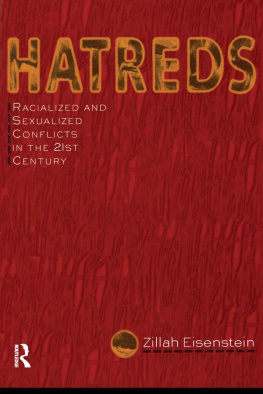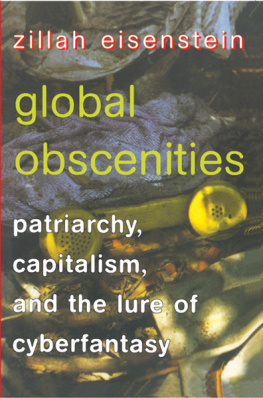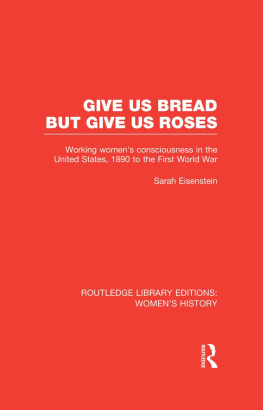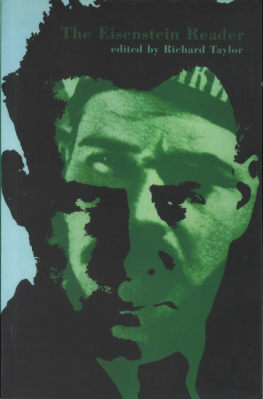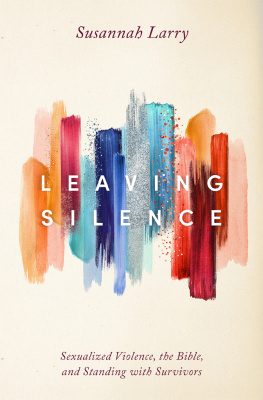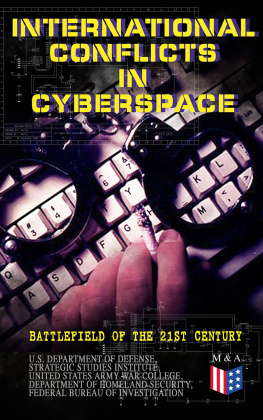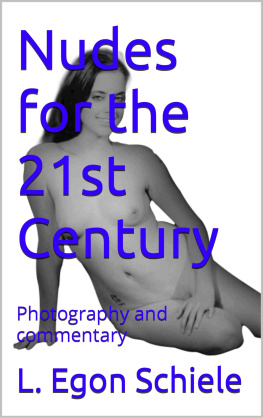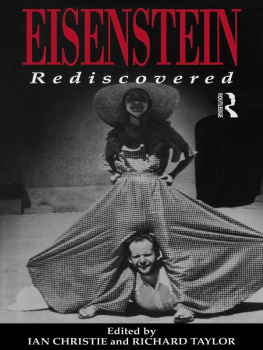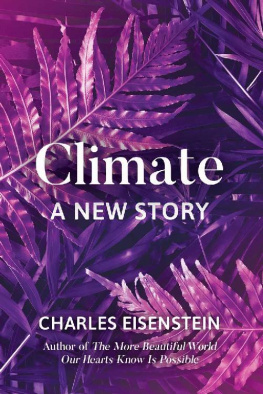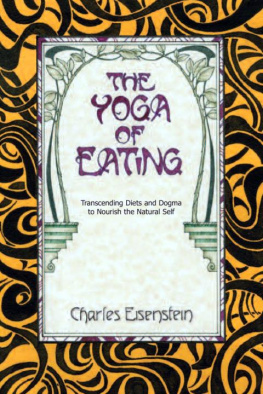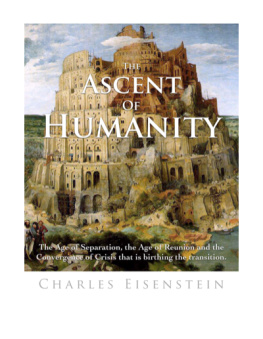First published 1996 by Routledge, Inc.
Published 2014 by Routledge
2 Park Square, Milton Park, Abingdon, Oxon, OX14 4RN
711 Third Avenue, New York, NY 10017, USA
Routledge is an imprint of the Taylor & Francis Group, an informa business
Copyright 1996 by Routledge, Inc.
All rights reserved. No part of this book may be reprinted or reproduced or utilized in any form or by any electronic, mechanical or other means, now known or hereafter invented, including photocopying and recording, or in any information storage or retrieval system, without permission in writing from the publisher.
ISBN 978-0-415-91220-4 (hbk)
Library of Congress Cataloging-in-Publication Data
Eisenstein, Zillah R.
Hatreds: racialized and sexualized conflicts in the twenty first century / Zillah Eisenstein
p. cm.
Includes index.
ISBN 0-415-91220-2 (CL). ISBN 0-415-91221-0 (pbk.)
1. Racism. 2. Sexism. 3. Patriarchy. 4. Post-communism. 5. Feminism.
I. Title.
HT1521.E44 1996
T here are many people I wish to thank for their help in writing this book. John Borneman, Asma Barlas, Sandra Greene, Mary Jacobus, Mary Katzenstein, Chandra Mohanty, Susan Buck-Morss, Renata Salecl, Tom Shevory, and Anna Marie Smith all read and commented on several chapters. Their critiques have made this a much better book.
I also very much want to express my enormous gratitude to Miriam Brody, Patricia Zimmerman, and Rosalind Petchesky for reading and commenting on the entire manuscript. Their unique standpoints each demanded further clarity of me. Miriam even revisited parts of the manuscript a second time. I feel very lucky to have such talented and committed friends. Our sharing of ideas often leaves me not knowing where my ideas stop and theirs begin, or vice versa.
Anne Sapanaro and Kim Conrad were invaluable research assistants. Donna Freedline helped me with the difficult international communications and correspondence so necessary to my project. Jim Meyer of the Ithaca College Bookstore kept me supplied with all the newest writings I needed, and he checked more than a few footnote queries. Sarah Dean assisted me with her keen secretarial and computer skills. Mary Jacobus and Linda Zerilli helped me sort through the psychoanalytic literature.
If Sally McConnell-Ginet had not asked me, in the wake of the 89 revolutions, to explore racism for the Cornell conference Women in the New Germany and Its Neighbors, I am not sure this book would have developed as it has.
My work owes an extraordinary debt to Ann Snitow and Sonia Jaffe Robbins of the Network of East-West Women. Because of their initiative I was able to meet with women from eastern and central europe at conferences they arranged. The women I met at the Nationalism and Feminism conference held in Washington, d.c., in October 1993 have been crucial to the writing of this book. I could not have completed my study without the incredible generosity of Zarana Papic and Lepa Mladjenovic of ex-yugoslavia.
I also wish to thank the New Jersey Project, Cornell Womens Studies, and the Whitman Series in Political Theory at Rutgers University for inviting me to lecture from sections of the book while it was in process.
My thanks to my seminar classes at Ithaca College, spring and fall 94, on the New Nationalisms and Post-Cold War Isms, which supplied a vital dialogue for many of the ideas discussed here. Students in my 95 Feminist Theories class provided fertile ground for exploration and exchange.
Given my heavy teaching load, it would have been very difficult to complete this book without Ithaca Colleges institutional support by way of the reassigned-time program, and faculty research and travel grants.
And then there are those who sustain me, and allow me to write, even when they are not part of the writing process. So thank you to my mother, Fannie Price Eisenstein, for supporting me in every avenue of my life; and thank you to Richard Stumbar, who nurtures my imaginings; and to Ellen Wade, who is always there, through anything and everything. And I want to express my deep love and devotion to my sisters, Giah and Julia, who always asked about HATREDS even when their bodies hardly allowed them to think beyond their pain.
I also want to acknowledge and thank my incredible editorial team at Routledge. Cecelia Cancellaros support and enthusiasm for the book made the entire project easy; Claudia Gorelick oversaw initial production with an extraordinary clarity; and Christine Cipriani and Norma McLemore went over the manuscript with a critical and talented eye. My heartfelt appreciation to each of them.
Last, I want to acknowledge my daughter Sarahs part in my writing of this book. She directed me to nazi germany when I had no initial intention to look there. Her own independent passion to know about the children living during world war IIespecially those who lived in hiding from the nazis, but also those who were forced to die in the concentration campspulled me there. She would often look at the books in my study and say that I was not reading the really important stories. So at night we would read together Judith Kerrs When Hitler Stole Pink Rabbit, Jane Yolens The Devils Arithmetic, and Howard Greenfelds The Hidden Children, to name just a few. The horror and the spirit of these books is, I hope, found in my writing, and I thank Sarah for this.
M y ten-year-old daughter and I recently read Nelly Tolls story of her terror-filled years in hiding from the nazis in poland. Black slave girl and Jewish girl both barely escaped death by hiding. For years this was all they could do. Sarah saw beyond their differences and connected their pain and suffering in order to better understand them.
The racializing of differencebe it of the jew or black or girl/womanrequires that we look through and in between the horrors of hatred. The slave trade, black slavery, and racial lynchings do not bespeak the same hatred as do the expulsion of jews from spain in 1492 or the concentration camps of nazi germany or bosnia. Yet the slaves who died on the slave ships share a later history of hate with the jews and gypsies (roma) of the holocaust. The histories of the girls/women of these years further interweave the atrocities through rape and sexual torture. The particular histories must be recognized, explored, and compared because these accounts are part of a similar, though not identical, otherness.
So I begin by asking you to see many kinds of hatred, written on similar kinds of bodies.
I start with the body and never quite leave it behind. I dont follow a traditional straightforward narrative, so let me give you a road map for this books geography.





